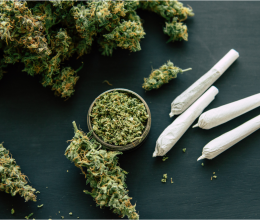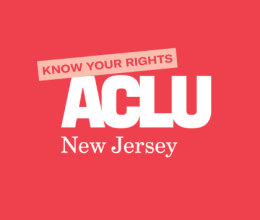
One year ago, New Jersey delivered the single biggest blow to mass incarceration in state history. The Public Health Emergency Credit, a first-of-its-kind law, went into effect, creating a pathway for those incarcerated in state prisons and set to be released within a year to have their sentences reduced by up to eight months.
When this law took effect on Nov. 4, 2020, New Jersey experienced the biggest single day of decarceration in its history, returning 2,258 people home. And over the past year, that number climbed to 5,343 people released early from prison. The collective impact was massive: New Jerseyans got back 2,759 years — more than 1 million days — of freedom and opportunity.
According to the Prison Policy Initiative, since March 2020, New Jersey has effectively reduced its prison population by a whopping 42% — more than any other state — addressing two ongoing public health and racial justice crises: the pandemic and mass incarceration.
In early 2020, as we were realizing the human toll of the pandemic, we were also beginning to see how COVID-19 would exacerbate society’s preexisting racial disparities. The pandemic has widened the gaps and deepened the health, economic and educational burdens faced by people of color across New Jersey.
And, in the criminal legal system, where New Jersey remains notorious for having the country’s worst Black-white racial disparities in incarceration, our state prisons had a COVID infection rate that was 3.8 times higher than outside prison. For many months, New Jersey had the worst rate of COVID-related prison death in the country, with more deaths than New York, Connecticut, Pennsylvania and Massachusetts combined.
The ACLU-NJ and our partners at Salvation and Social Justice and New Jersey Prison Justice Watch spent hours talking to family members of people who were at severe risk or had died because of COVID in prison. We met Bernice Ferguson, whose son Rory Price died just weeks before his release. She insisted that she did not want another parent to feel this same pain. We met Scott Clements, whose brother Brian was at extreme risk due to underlying health conditions and was just months away from his release date. He was terrified he would never make it home.
We quickly realized a truth: to reduce the spread of the virus and save the lives of those who are incarcerated and those who work in prisons, we needed to reduce the prison population, and we needed to do so quickly and responsibly. That’s when the idea for the Public Health Emergency Credit was born.
As with other credits available for incarcerated people, the idea was simple: people who were incarcerated during the COVID-19 pandemic, when conditions were particularly dangerous, would receive time off of their sentences. This would allow people who were already scheduled to get out of prison soon to get out a little sooner; it would also acknowledge that serving time under the specter of the deadly virus made crowded conditions even harsher, with programming and visits ground to a halt.
Thanks to the dedicated leadership of our prime sponsors in the legislature, Senator Nellie Pou and Assemblyman Raj Mukherji, the bill passed. With Gov. Phil Murphy’s signature, we charted a course to drastically reduce the prison population. Now, New Jersey is leading the nation in decarceration.
Releasing thousands of people from prison is not simple. Some politicians and pundits have, sometimes erroneously, seized on a small number of cases in which people have been accused of serious crimes following their early release as a reason to reject bills like the Public Health Emergency Credit. This is problematic fearmongering. While any death is tragic, the people who have been charged with high-profile crimes after early release have not yet been convicted. The presumption of their innocence matters. And we should not legislate by anecdote: instead, we should look at holistic data to determine policy.
We must also take steps to provide the supports needed for people coming out of prison to reenter society safely and drive down recidivism. But keeping people incarcerated in deadly conditions for a few more months with no programming was certainly not the way to prepare people for reentry.
Now that we’ve seen what meaningful reduction in our prison population can look like, it is important that New Jersey take steps to preserve and continue it. We must continue to reform our outdated criminal legal system with life-affirming policies that focus on supporting New Jerseyans, like ending mandatory minimum sentences, investing in community-driven programs, putting a stop to biased police practices like racial profiling, ending the drug war by decriminalizing drug possession and investing in harm reduction, appointing prosecutors who are committed to ending mass incarceration, and more.
Reducing our prison population was necessary to save lives from COVID-19. Keeping our prison population down is necessary to save lives from an unjust criminal legal system.
This piece was originally published by The Star-Ledger/NJ.com




